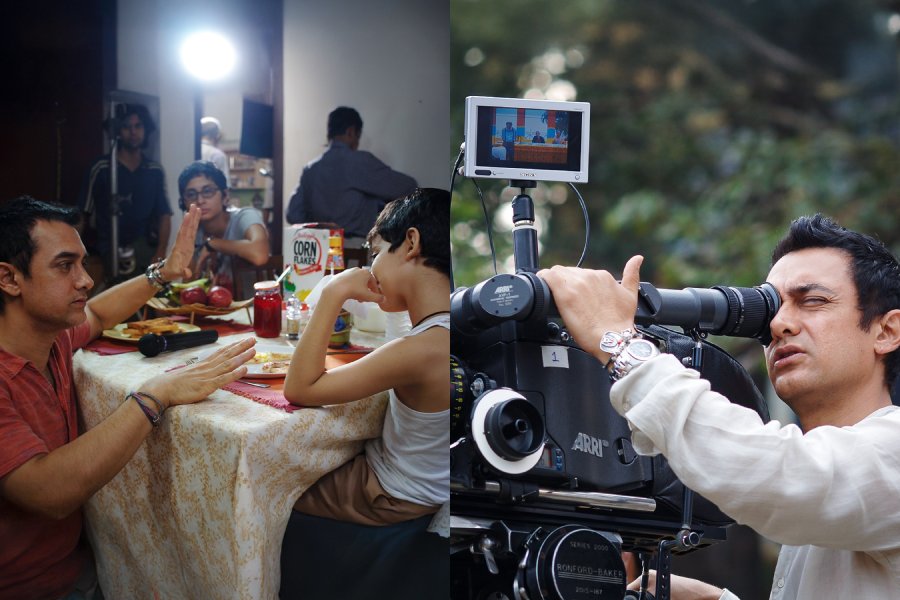 Monday, 23 December 2024
Monday, 23 December 2024
 Monday, 23 December 2024
Monday, 23 December 2024
The Supreme Court hearing Tuesday on the rape and murder at RG Kar Medical College and Hospital brought a sense of deja vu for India’s working women, particularly doctors.
Chief Justice of India D.Y. Chandrachud’s words, when he slammed the Bengal government notification that sought to restrict women from working night shifts and limit their duty hours to 12 hours, cut to the matter.
“How can you say women cannot work at night? Why limit women doctors? They don’t want a concession, they are ready to work in the same shift [as the men],” the CJI said.
The Bengal government notification was issued against the backdrop of the RG Kar horror. It’s a script India’s working women are only too familiar with. Whenever there is a shocking incident of violence against a working woman, our collective knees jerk to the same reaction – of policing the potential victims of such crimes by restricting their freedoms.
Dwarkanath Ganguly, the husband of Kadambini Bose Ganguly, Asia’s first female doctor, had to fight in court when she was insulted by a conservative Bengali magazine. The courts sided with progress then, handing the editor a six-month jail sentence. Kadambini was born in 1861; but we can hazard a guess that her reaction would not be too different from the women doctors we spoke to after the Supreme Court hearing.
“Being a doctor we always believe in equal opportunity and do not prefer or want any special preference over our fellow male doctors,” Dr. Dolly Gupta, a Calcutta-based consultant dermatologist and hair transplant surgeon, told The Telegraph Online.
“Being a doctor we always believe in equal opportunity and do not prefer or want any special preference over our fellow male doctors,” Dr. Dolly Gupta, a Calcutta-based consultant dermatologist and hair transplant surgeon, told The Telegraph Online.
“We've been working at night and doing 36 hours continuous duty with just 6-8 hours gap at times with no proper sleep between two shifts right after completing our MBBS. It's the responsibility of the institute to ensure safety of everyone inside the premises and responsibility of the government outside the premises when the doctors or female employees commute to and from hospitals for night shifts.
“Equality means equal opportunity, equal facilities with no gender bias so that we female doctors can work confidently with a free mind, protecting the patients from diseases instead of worrying about our own safety while treating them,” she added.
From being hailed for making history in 1861, the women of Bengal find themselves attacked in their own workplaces in 2024. It’s a strong reminder that there’s still a long way to go in ensuring women’s safety and equal rights. Even in so-called progressive Bengal.
Women don’t want to be held back by outdated policies — they want equal opportunities. The numbers speak for themselves: In 2023, over 11 lakh women registered for the NEET exam, showing that more and more women are stepping into professions once dominated by men, including doctors, pilots, and even nightclub managers.
All of them work night shifts.
Kapil Sibal, representing the Bengal government, tried to defend the government’s notification issued on August 19, but the court thankfully would have none of it.
One wonders if the people drafting such notifications are living in the 19th century, still imagining women as delicate flowers who need to be tucked into bed by 8 pm. In a state that celebrates Kadambini, is this the best they can come up with to protect women?
“When patients rush through the emergency, we don't have the luxury to even remember who I am, where I come from, what my gender is, or what the time is, day or night,” said Dr Devalina Bose, a student at RG Kar Medical College.
“All I care about is how much is the BP [blood pressure], where the saturation probe is, how much is the CBG [capillary blood glucose], is the patient breathing or not,” she added.
“To me, equality is not only equal opportunities for women, but also it shows that we do care about our fellow male co-workers. In government hospitals, with the huge workload that we have, it's not possible for them to handle things alone. We want to work hand in hand. Not above, not below compared to males. Of course, if I demand equal respect, I should put equal effort, and I've done it in my internship. I've worked 48 hours. Sometimes, the duty gets inhumane, but that is true for the male doctors as well. There should be proper working hours for doctors irrespective of gender.”
The real solution lies not in restricting women but in ensuring their safety, as the Supreme Court rightly pointed out.
The government’s plan to hire over 1,500 private security guards doesn’t inspire much confidence either, given that the main suspect in the RG Kar case was a civic volunteer. As CJI Chandrachud put it, how can a seven-day training program for on-contract staff guarantee safety?
“As a female doctor in India, I would really want the government to look into the government facilities much more meticulously because there are many negatives to working in the government hospital if we compare it to the private ones,” Dr Apoorva, who used to work at Deen Dayal Upadhyay Hospital in Delhi, told The Telegraph Online.
She doesn’t use a surname, and is studying for her NEET PG exam.
“The doctor’s room does not have enough space for the doctors, it is so compacted in some departments that they have two single beds and the number of doctors on duty is always more than two. The restrooms are common, and they are totally unhygienic and dangerous because sometimes in the absence of doctors they are used by patients or their relatives as well,” Apoorva said.
Women today don’t want pity; they want protection, equality, and the right to work without fear. Are the governments listening? Or are they, as Indira Jaising – representing the protesting junior doctors – said in court, in denial?







